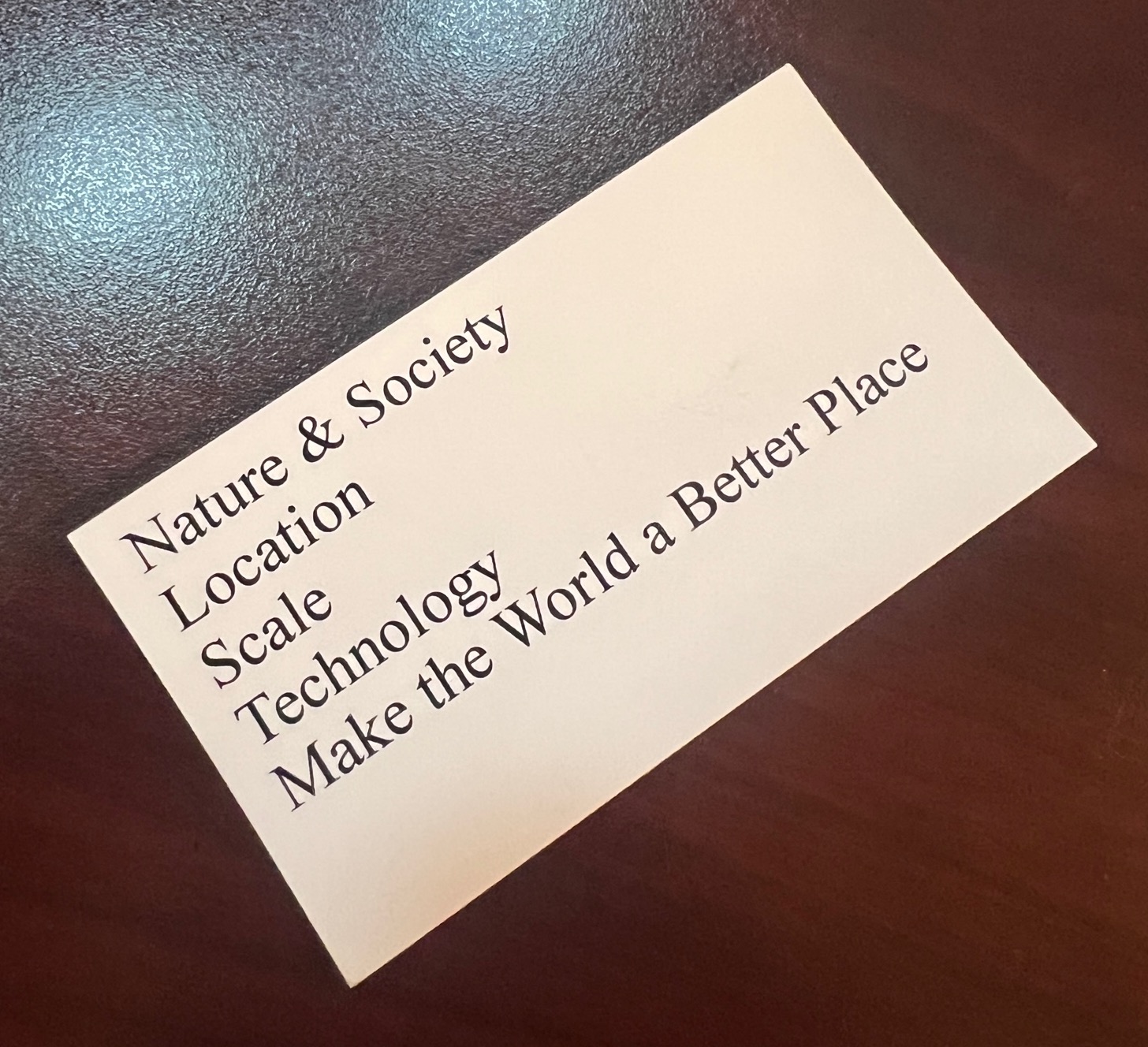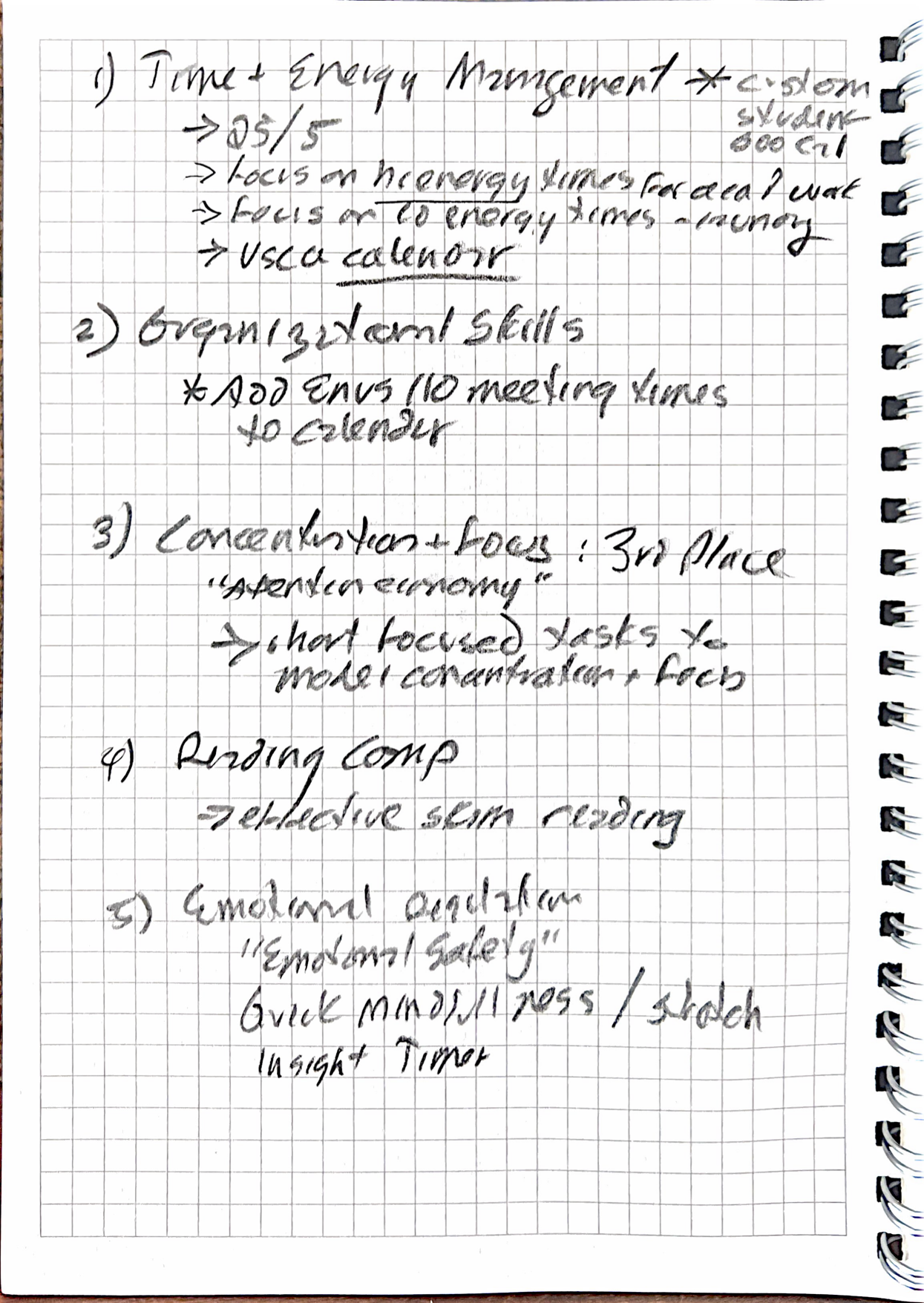Update 1/12/2026

Crazy complexity of nature, environment, and human cultural and social interactions
- Brief walk across campus and to Delaware Run…

Think: different approaches to environment & sustainability (first half of RHM text):
- Concepts that enable action
- Population & Scarcity
- Markets & Commodities
- Institutions & the Commons
- Environmental Ethics
- Risks & Hazards
- Political Economy
- Social Construction of Nature
- Feminism & the Environment
- Racialized Environments
Then apply those concepts to understanding stuff in the environment (second half of RHM text)
-
- Carbon Dioxide
- Trees
- Wolves
- Uranium
- Tuna
- Lawns
- Bottled Water
- French Fries
- E-Waste
Active, engaged pedagogy
- Theory into practice: OWU Connection-centered course & Department
- What’s happening with the environment
- How to think about the environment and stuff in it
- How to do something about the environment: give you some agency
- How to think about the environment and stuff in it
Importance of the research process: intellectual skills imparted by a college education: Project, theory into practice
Importance of collaboration: student knowledge and interests, other OWU students, faculty, staff, OWU partners: ENVS 198/498
Lots of steps, parts, due dates: the research process: you are fully capable of managing a relatively complex project
Yeah, no Blackboard. It doesn’t work for a class like this.
 |
Executive Function |

So, AI. To paraphrase one screed:
-
- AI can be sloppy and incomplete, leaving out random parts of what you ask it to do
- AI hallucinates facts and data if it doesn’t know the answer
- AI claims objectivity or certainty when it possesses neither
- AI analysis can break down if it’s asked to perform complicated tasks;
- It’s easy to become too reliant on AI; it will make you dumber because one gradually shifts one’s interpretative and analytical abilities to it (confirmed by a recent MIT study);
- How manipulative it can be, subtly shifting a user’s worldview over time to align with establishment dictates.
- AI encourages narcissism by subtly reflecting your views back to you and fawning over your ideas and work
That said: let’s give it a try.
Review course syllabus, schedule, project w/AI components.
Send me an email (jbkrygier@owu.edu) with the following info:
- Your Name (preferred name)
- The course (ENVS 110 [and section] and if you are in ENVS 198)
- Did you take the anonymous AI survey? (must be logged into your OWU account)
- Did you subscribe to the class calendar?
- Did you look over the syllabus, schedule, and project pages?
- Did you share the folder (see below)
- Do you have access to the text (or will share the copy in the back of 207)?
- Major (or ideas for major)
- Year at OWU
- Hometown (and state or country)
- Reason for taking this course
Sharing your work with Instructor: this is how you turn stuff in
- Go to your OWU Drive account
- Create a new folder with the course and your last name
- +New button (upper left) >> then Folder
- Phoebe B. Peabody Beebe’s folder would be: ENVS 110 Beebe
- Share that folder with me (so I can edit)
Later, when you are ready to turn in your work: for example, the 6-page chapter review:
- put the document in the shared folder
- email me that your document is in the shared folder and ready for me to review
hi:)